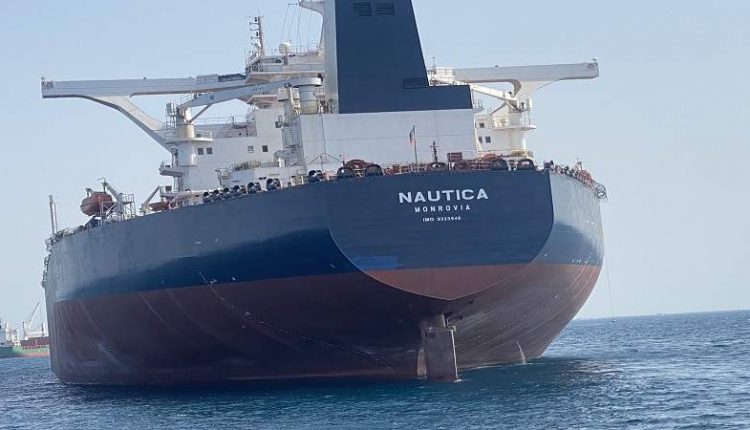UN Vessel Arrives at Hodeidah Port for Pumping Out Oil on Board of Safer Ship
The UN vessel arrived Sunday at Hodeidah Port for pumping out oil from the Safer floating ship; tomorrow it will be officially received in the presence of the concerned authorities.
The Minister of Transport, Abdel Wahhab Al-Durra, said that the ministry has prepared an integrated plan to secure work. “All necessary help will be available to the UN team, working on pumping out the oil on board the Safer ship,” he said.
The 376-meter-long Safer floating ship, which has moored 4.8 nautical miles from Ras Issa port in Hodeidah 30 years ago, is a strategic destination for Yemeni crude oil, flowing through a pumping pipe coming from Sector 18 in the Safer area in Marib, and Sector 9 in Malik area in Shabwa.
It was converted from a tanker bearing the name “Isso Japan” that was manufactured in 1976, to a floating tank sold to Yemen in 1986. The tank can hold more than four million barrels of crude oil that is sold to foreign ships.
The Sana’a government says that the ship’s operating crew reaches 700 employees, including technicians, engineers and others in various specialties. It accused the US-Saudi aggression and the Saudi-backed government of targeting the reservoir since it instructed its subsidiary Safer Company in Marib, to reduce workers to only six.
On November 8, 2016, the Saudi-led aggression issued a decision to prevent the arrival of the 3,000-ton diesel ship, Rama 1, which is related to supplying the floating ship Safer, according to an official letter from the Public Authority for Maritime Affairs, Hodeidah Branch.
Any oil leakage from the Safer ship or explosion may cause, according to the researchers, to hit the marine environment on which nearly 30 million people depend, including at least 1.6 million Yemenis. The damages may expand to the fisheries on the western Yemeni coast within days, destroying the livelihoods of the coastal communities in Hodeidah, Hajjah and Taiz, who depend on marine fishing and humanitarian aid. More than 8.4 million people may be exposed to elevated levels of pollutants.
Sana’a has repeatedly warned of the repercussions of the deteriorating condition of the Safer tanker after nearly seven years of its stay without any maintenance, which makes the level of an environmental disaster in the Red Sea very larger than ever before, which will affect Yemen and neighboring countries for many years.

